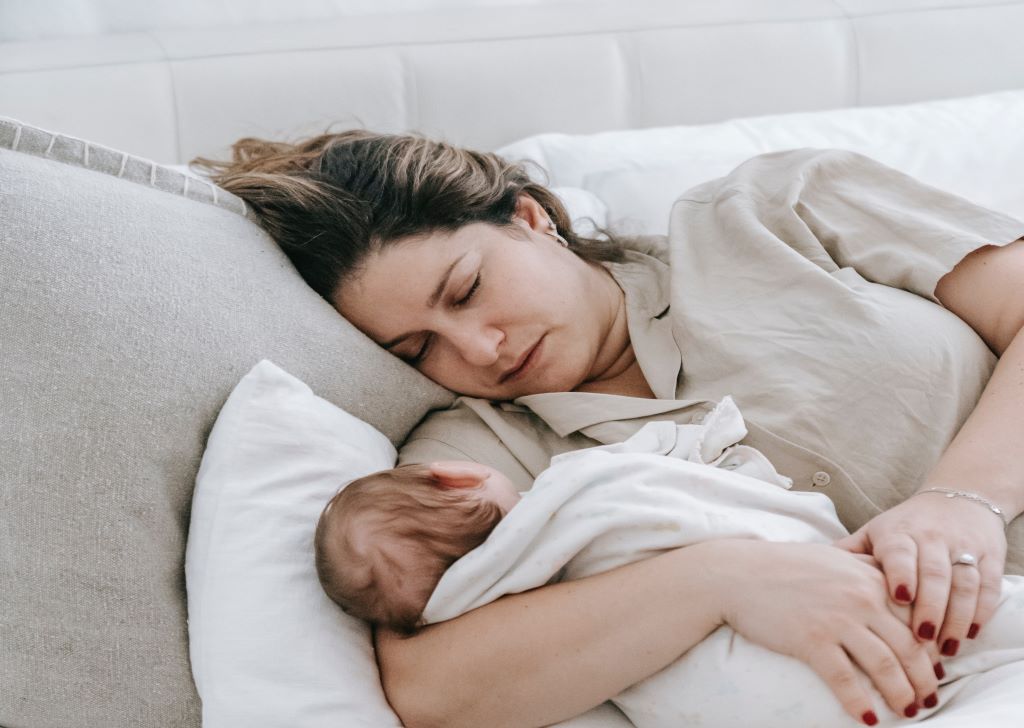Everyone knows that parenthood comes with a certain amount of sleep deprivation, especially in the beginning. But until you do, it may be difficult to predict how much sleep deprivation you will experience and most importantly, how you will feel and how you will be able to manage.
And it isn’t only sleep-deprived new mothers who are dragging. Sleep isn’t easy for women, regardless of how old their children are, whether they have a toddler requesting encores of You Are My Sunshine at 4 a.m. or a high schooler thundering up the stairs an hour after curfew.
Some babies seem to sleep like angels from the beginning but few other babies have a different plan to do. If you belong to one of the unlucky parenthood period, do not worry mamma! You are not alone. Yes, it is completely understandable that it would be ridiculously tired as you face this sleep deprivation. Sure it is going to pass on by one day and you will get through it.
All said that, sleep deprivation is not just something you have to “hold on and carry.” Sometimes sleep deprivation can make you feel downright awful, and it can be harder to be the parent you wish to be.
If you are looking for ways to survive sleep deprivation and perhaps find some way to catch some extra shut-eye, you are on the right place. Here’s how to put sleep deprivation away and enjoy your sleepy hours along with your baby.
Sleep patterns of the baby: What to know
Babies are not biologically programmed to sleep well. It’s just a fact. It is very common for babies to wake up several times a night for the first three months and sometimes much often longer than that.
Every baby is different, some seem to sleep better and even more soundly than others. Generally, here are some mentions on how your child will sleep:
For the first six months, babies spend about 50% of their day in active sleep, during which they are more likely to wake up easily.
Babies wakes up to eat, even in the middle of the night, for at least the first 3-4 months, usually for a long time.
Up to the age of preschool age, children have shorter sleep cycles than adults: 50 minutes compared to 90 minutes.
Up to about six weeks, babies do not have circadian rhythm, which means sleep occurs in uneven stages, and babies often wake up in the middle of the night.
Impacts of sleep deprivation on health
Anyone who has ever lost a few hours of sleep knows that sleep deprivation can make you feel more forgetful, discouraged, isolated, and tired. But chronic sleep apnea, as is often the case with a new parent who is sleep deprived, can have a profound effect on your physical and mental health.
Physical Health
All of us react physically when there is a lack of sleep or sleep deprivation in different ways, and coping with a few months or weeks of sleep deprivation will not going to set us up with health problems. However, it is important to be aware of the fact that insomnia has negative effects on health and wellness:
- Sleep deprivation can affect your immune system, putting you at greater risk for illness.
- Sleep deprivation can alter your body’s metabolism and appetite symptoms, leading to weight gain.
- Sleep deprivation can change your hormonal balance and reduce your sexual desire.
- Long-term Sleep deprivation increases the risk of diabetes, high blood pressure, and heart disease.
Mental Health
You may have a thought on sleep deprivation that tends to make you unstable and often unhappy. But sleep deprivation can also lead to the development or worsening of mental health problems, especially depression and anxiety. This is more important when considering the mental health of new mothers, who have a 1 in 7 chance to develop a postpartum depression.
While it is true that postpartum depression and anxiety may have more than one cause, but Sleep deprivation is an important factor to consider.
For example, according to a study published in the Journal of Research in Medical Sciences in 2016, mothers with sleep disorders had 3.34 times are more likely to deal with postpartum depression.
How to Manage Postpartum Depression and Anxiety?
Tips for the parents to get more sleep
While it is true that sleep deprivation is a fact of life — especially if you have a new baby at home — that does not mean there is nothing you can do to increase your chances of getting enough sleep, or at least close to enough. It requires little planning, ingenuity, and support from others, but it can be done.
Sleep While the Baby Sleeps
Many parents would have heard of these old repetitive words ‘Sleep while the baby sleeps’. But when the baby actually arrives, it may be very difficult to keep your eyes closed while your baby snoozes.
Many parents feel the need to take matters into their own hands at this time or to devote some time to the “just be,” and that is understandable. But your baby’s nap is prime time for you to sleep, so use it wisely.
Keep Your Baby Close
The American Academy of Pediatrics (AAP) recommends the babies to sleep or share in the same room with their parents for the first year of life. Keeping your baby close to you has great benefits in terms of getting enough sleep. If you do not have to go down the hall to take care of your baby, your baby will not wake up fully, and you will both have an easy time falling back asleep.
Encourage Good Sleeping Habits
There is almost nothing you can do to help your child sleep soundly in the first few months of life other than keeping the room dark and soothing your baby. However, as they grow older, you can help set the stage for a healthy sleep by having a quiet sleep routine, using regular bedtime, and promoting daily sleep.
Make a Postnatal Maternity Sleep Plan
Like other mothers who make a birth plan, or a plan for decorating a nursery, you can make implement for how you will deal with sleep deprivation when your baby arrives.
Usually, getting your partner involved helps. For instance, they can take the baby with them and bring the baby to you for night feedings if you are breastfeeding. You could also consider having an extra family member or antenatal nurse / baby nurse to come regularly so you can sleep while they take care of your baby.
Sleep When You Can
Think of it this way: Your goal is 7–9 hours of complete sleep (depending on your needs), but it doesn’t have to happen all at once, or at night. A few 20-minute catnaps can add and help you get the sleep you need. Make it your goal to get some sleep whenever you can. It all counts.
Get Your Partner’s Help
If you have a partner who is available at night or even during the day, make sure you understand that child sleep care is not a one-person job. While your partner may not be able to give birth to your baby or breastfeed, managing the night and getting up and letting you sleep during the day (or letting you sleep on the weekends) is definitely a job they can and should do.
Practice Healthy Sleep Habits for Yourself
Sometimes the very fact that we do not get enough sleep can make it difficult for us to sleep even when the opportunity arises. Now is a good time to find a toolbox of things to try if you have trouble sleeping. Meditation, daily rituals that allow you to have a peaceful sleep, bedtime stories, and bedtime breathing techniques can be very helpful.
The Takeaway
Even if you make an effort to do things like “sleep when the baby is asleep” and accept whatever helps are offered, you will still have many days as a parent when you feel completely deprived of sleep. It has happened to all of us, and somehow the human race has survived through the ages.
During those days when sleep deprivation makes it difficult for you to do much of anything, try to cut down things by yourself as much slack as possible, and give yourself a kind ton of grace to sleep.
It is all too easy to adopt, even unwittingly — the attitude that we should have as parents, and when sleep deprivation strikes, it usually means that all we can accomplish a little and that’s fine.
So, forget about a formal house when you are not sleeping properly or experience sleep deprivation. Allow yourself to live your life as a lazy person sometimes. If you end your day with a happy fed babies, hurray! You are doing a great job. And sure you’ll sleep again someday.
Related Article : Safekeeping newborn
Sources : Sleep Deprivation and Deficiency


What’s up, always i used to check webpage posts here in the early hours
in the morning, as i like to find out more and more.